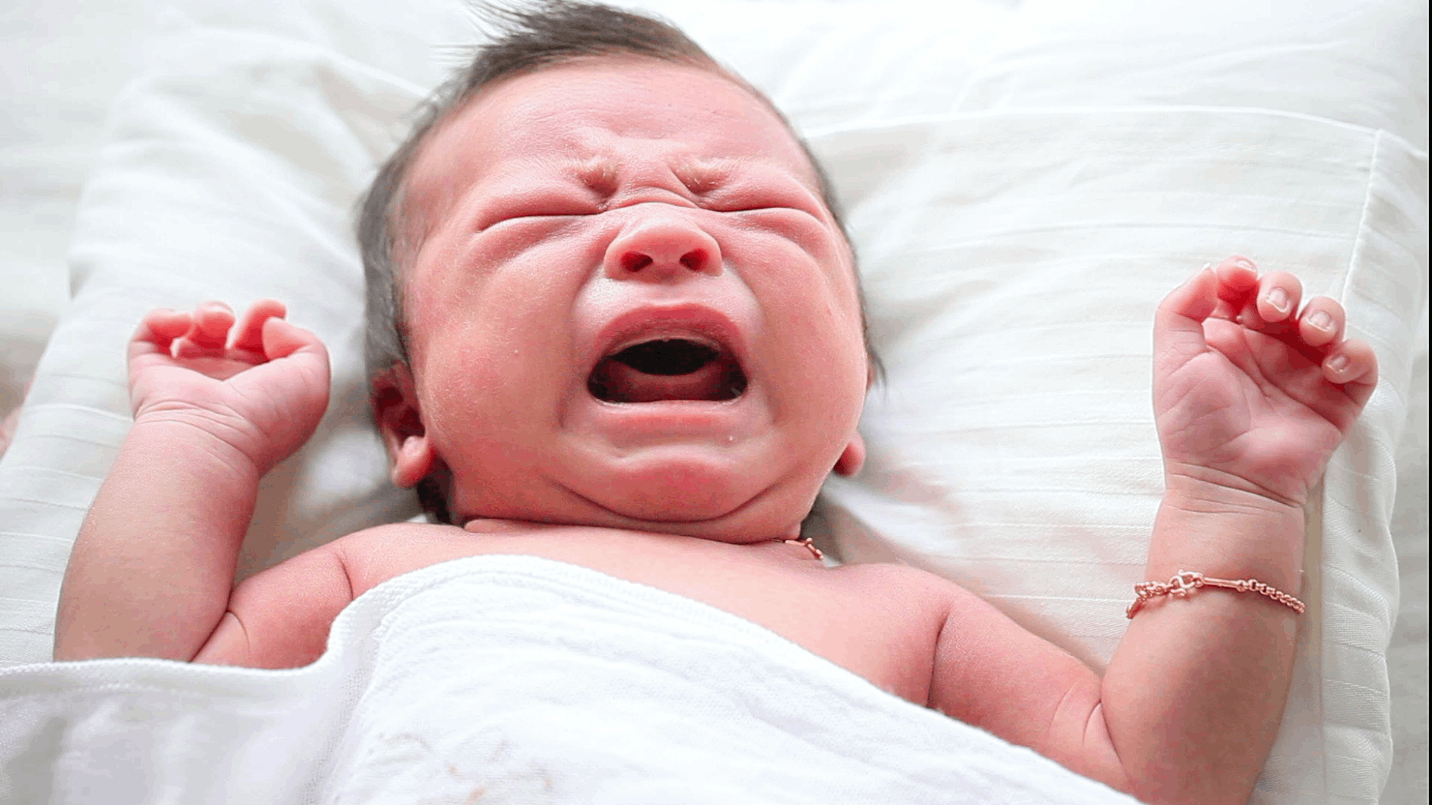Are you a parent of an otherwise healthy baby who cries or fusses for long periods of time for no particular reason at all? Are you getting frustrated that your child doesn’t seem to become relieved regardless of how much consoling you do?
If your baby is healthy, well-fed, and wearing a fresh diaper but has been crying for hours, your child may be suffering from colic. Unfortunately, there’s practically no amount of consoling that you can do to stop the crying. Thankfully, there are other things you can do to manage colic.
This article will talk about infantile colic, its causes and symptoms, and how it’s diagnosed. It will also discuss several techniques and remedies that you can use to relieve your baby from colic and get those extra hours of sleep and rest. If you want to know more, continue reading below.
- Understanding Colic in Infants
- Identifying the Symptoms of Colic in Babies
- Knowing How Colic Is Diagnosed
- Avoiding Possible Colic Triggers
- Learning About Recommended Techniques for Relieving Infantile Colic
- Maintaining Self-Care for Parents with Colicky Babies

Understanding Colic in Infants
According to the Mayo Clinic, colic is characterized by frequent, prolonged, and intense crying or fussiness in a healthy infant. These episodes often happen in the evening for no apparent reason.

Familydoctor.org defines colic as crying for more than 3 hours a day at least 3 days a week for over 3 weeks. IN addition, KidsHealth stated that colic may be experienced by up to 40% of all babies.
Colic episodes usually reach their peak at about 6 weeks of infancy and will decline dramatically after the age of 3 to 4 months. Although the excessive crying will be resolved with time, there are steps to lessen the severity and duration of episodes.
Causes of Colic
Doctors are still unsure of what causes colic in infants but researchers have looked into probable factors that contribute to the occurrence of colic episodes. However, these variables may differ in every case.
Some doctors think that colic is caused by acclimation to the world outside the womb or neurological immaturity. Others attribute it to pain or discomfort from indigestion or gas or a digestive system that isn’t fully developed yet.
Other identified factors for colic include underfeeding, overfeeding, infrequent burping, breast or formula milk sensitivity, food allergies or intolerances, an early form of childhood migraines, and family stress or anxiety.
Identifying the Symptoms of Colic in Babies
While it’s normal for babies to cry and fuss, colicky infants exhibit intense crying, which is more like screaming as if they are in pain. However, with colic, they actually cry for no apparent reason and not because they’re hungry or need a diaper change.

The time they experience these episodes can be predictable and most of the time it happens in the evening. Some babies clench their fists or curl up their legs when crying. Others may have stiffened legs and arms.
You may also observe facial discoloration in infants with colic, wherein their faces may turn bright red or the area around their mouth could become paler compared to the rest of their faces.
Risk Factors and Complications Associated with Colic
Currently, the risk factors for colic are not yet fully understood. Research has shown no differences in risk when examining several factors, such as sex of the child, pre-term or full-term pregnancies, and formula- or breast-fed babies.
However, it was determined that the risk of developing colic is higher in infants whose mothers smoked during pregnancy or after delivery. The good news is, the condition does not cause short-term or long-term complications in children.
On the other hand, research revealed that the risk of postpartum in mothers is increased when colic occurs. Colic could also cause early cessation of breastfeeding and parents could develop feelings of guilt, anger, exhaustion, and helplessness.
Knowing How Colic Is Diagnosed
Just like any other medical condition, you must consult your baby’s doctor to determine whether your child has colic or not.

A complete physical exam will be conducted by the doctor to examine the possible causes of your baby’s distress before concluding whether or not the baby has colic.
The exam will involve measurements of your baby’s height, weight, and head circumference. The doctor will also listen to your child’s heart, lungs, and abdominal sounds.
Other Tests in Colic Diagnosis
The doctor will also examine the baby’s limbs, fingers, toes, eyes, ears, and genitals, as well assess the reaction to movement or touch.
The doctor will also search for any signs of inflammation, rash, or other symptoms of allergies or infection.
While lab tests, X-rays, and other diagnostic exams are usually not necessary, the doctor may require them in unclear cases to rule out the possibility of other conditions.
Avoiding Possible Colic Triggers
Although colic cannot be avoided or prevented, there are several ways to avoid triggering colic or to help soothe your baby and lessen the crying and fussing episodes.

When breastfeeding your baby, take note of what you eat and drink since anything you consume gets passed on to the infant and could affect their system. Stimulants like coffee and chocolate should be avoided.
You should also avoid dairy and nuts if your baby has allergies. With formula-fed babies, you should try different brands because certain proteins in the formula could cause a reaction in babies.
Other Considerations
Feeding the baby too much or too quickly should be avoided as well. If the baby eats fast, a nipple with a smaller hole could help. Feeding in an upright position should also be considered.
Sometimes, colicky babies could also respond well based on how they are being held or rocked. You could try holding the baby across your arm or lap while massaging their back.
If they have gas, try holding the infant in an upright position. You could also consider rocking the baby in your arms, using an infant swing, holding the baby in the evening, and holding the baby while walking.
Learning About Recommended Techniques for Relieving Infantile Colic
Although there are no proven treatments for colic, there are several interventions that can be used to soothe a colicky infant. Keep in mind that some techniques may work better than others and each technique may not always be effective.

Parents may need to experiment with these methods and keep track of how their babies react to them. One method is to use a pacifier or provide extra skin-to-skin contact.
You can also swaddle your baby in a blanket, walk around while holding your child, or use a rocking motion, as mentioned above.
Other Soothing Methods
Try singing or playing heartbeat sounds or other quiet, soothing sounds. In addition, white noise such as those from a fan, vacuum cleaner, hairdryer, dishwasher, or washing machine could also help your colicky baby settle down.
If a colic episode occurs, you may opt to give the baby a warm bath or if that’s not possible, simply place a warm towel on the baby’s stomach.
Another technique is to give the baby a belly rub or place the baby on its stomach for a back rub. Limiting visual stimulations and dimming the lights could also help the baby calm down.
Maintaining Self-Care for Parents with Colicky Babies
While it’s important to devote time and effort to taking care of an infant with colic, parents should also take care of themselves to relieve stress and exhaustion.

You and your partner may take turns taking care of the baby or, if possible, you may ask a friend to take over for a while so you can spend a little time out of the house.
Placing the baby in the crib during a crying episode is okay if you need to calm yourself down or take a short break from carrying your child.
Other Parent Self-Care Methods
It’s not unusual for parents to feel guilt, helplessness, anger, and depression. Sharing your feelings with a family member, friend, or the baby’s doctor is recommended.
You shouldn’t judge your success as a parent by how much the baby cries since colic isn’t caused by poor parenting and these crying episodes are not a sign that your child is rejecting you.
Always take care of your health by eating healthy foods, allotting time for exercise, and sleeping when the baby sleeps. Lastly, keep in mind that colic is temporary and will eventually pass as your baby grows.
Conclusion
Managing and relieving infantile colic is not an easy task and will be challenging both for new and experienced parents. Being able to understand what colic is, why it occurs, and its symptoms are the first step to effectively managing colic episodes.
The techniques discussed here for preventing possible triggers, soothing colicky babies, and providing self-care for parents are very useful in making it easier to live with colic in the house. Remember to contact your baby’s doctor in cases of unusual behavior change.







